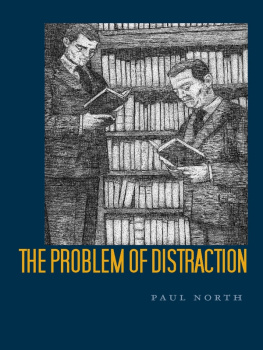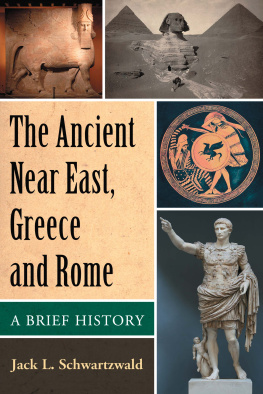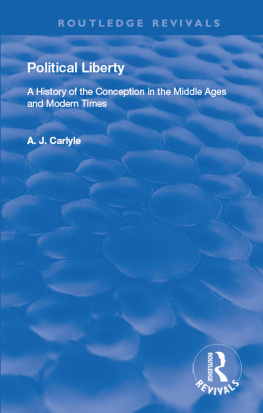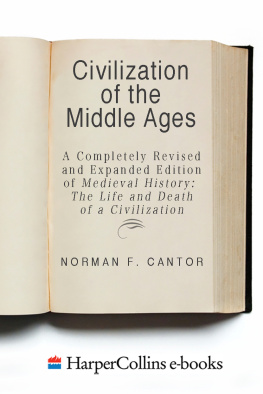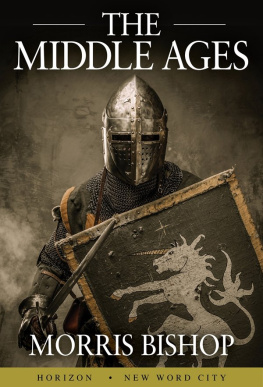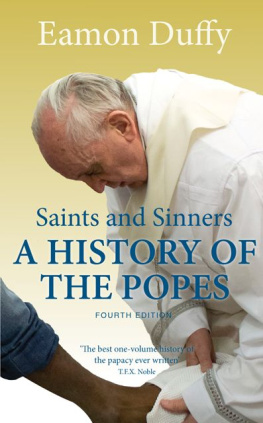North - A History of the Popes: Volume I: Origins to the Middle Ages
Here you can read online North - A History of the Popes: Volume I: Origins to the Middle Ages full text of the book (entire story) in english for free. Download pdf and epub, get meaning, cover and reviews about this ebook. year: 2015, publisher: Wyatt North Publishing, LLC, genre: Religion. Description of the work, (preface) as well as reviews are available. Best literature library LitArk.com created for fans of good reading and offers a wide selection of genres:
Romance novel
Science fiction
Adventure
Detective
Science
History
Home and family
Prose
Art
Politics
Computer
Non-fiction
Religion
Business
Children
Humor
Choose a favorite category and find really read worthwhile books. Enjoy immersion in the world of imagination, feel the emotions of the characters or learn something new for yourself, make an fascinating discovery.

A History of the Popes: Volume I: Origins to the Middle Ages: summary, description and annotation
We offer to read an annotation, description, summary or preface (depends on what the author of the book "A History of the Popes: Volume I: Origins to the Middle Ages" wrote himself). If you haven't found the necessary information about the book — write in the comments, we will try to find it.
North: author's other books
Who wrote A History of the Popes: Volume I: Origins to the Middle Ages? Find out the surname, the name of the author of the book and a list of all author's works by series.
A History of the Popes: Volume I: Origins to the Middle Ages — read online for free the complete book (whole text) full work
Below is the text of the book, divided by pages. System saving the place of the last page read, allows you to conveniently read the book "A History of the Popes: Volume I: Origins to the Middle Ages" online for free, without having to search again every time where you left off. Put a bookmark, and you can go to the page where you finished reading at any time.
Font size:
Interval:
Bookmark:

Wyatt North Publishing, LLC 2015
Publishing by Wyatt North Publishing, LLC. A Boutique Publishing Company.
Wyatt North and A Boutique Publishing Company are trademarks of Wyatt North Publishing, LLC.
Copyright Wyatt North Publishing, LLC. All rights reserved, including the right to reproduce this book or portions thereof in any form whatsoever. For more information please visit http://www.WyattNorth.com .
Cover design by Wyatt North Publishing, LLC. Copyright Wyatt North Publishing, LLC. All rights reserved.
Scripture texts in this work are taken from the New American Bible, revised edition 2010, 1991, 1986, 1970 Confraternity of Christian Doctrine, Washington, D.C. and are used by permission of the copyright owner. All Rights Reserved. No part of the New American Bible may be reproduced in any form without permission in writing
Origins of the Papacy: St. Peter to St. Clement
(ca. 33 ca. 101) .....
The office of bishop of Rome, is one of the most powerful positions in the world. As an ancient institution stretching back for centuries, the papacy has a history that is marked by archaic and modern customs alike. The history of the men who have held this position is fraught with villainous and heroic actions that have left a profound impact on the development of civilization as we know it, both in the West and East. The popes led the early Church through persecution, acquired temporal power through the actions of Constantine, oversaw the universal Church in the early middle ages, were steeped in various scandals in the late middle ages, saw their secular power stripped in the modern period, and were instrumental in the rise and fall of various kingdoms and nations.
Adding to the mystique of the papacy is the claim that the pope has a special charism called infallibility, meaning that when he teaches in his office as the successor of Peter on matters of faith or morals, he cannot err. How can such a claim be made seriously, especially in todays world where scientific rationalism pervades the mentality of modern men and women? The answer to this question goes back to Scripture. The Catholic Church interpreted several Scripture passages in the Gospel, in particular Matthew 16:16-19, as containing in seed form the doctrine of papal infallibility. At the First Vatican Council the bishops declared, For the Holy Spirit was not promised to the successors of Peter that they might disclose a new doctrine by his revelation, but rather that, with his assistance, they might reverently guard and faithfully explain the revelation or deposit of faith that was handed down through the apostles (Denzinger, 3070).
Jesus declared to Peter, [Y]ou are Peter, and upon this rock I will build my church, and the gates of the netherworld shall not prevail against it. I will give you the keys to the kingdom of heaven. Whatever you bind on earth shall be bound in heaven; and whatever you loose on earth shall be loosed in heaven (Matthew 16:1819, New American Bible, Revised Edition). At the same time, Peter denied Jesus three times ( Matthew 26:6975 ). How was Peter, a weak man, ever to hope to have the strength to lead Jesus followers? How can this prophecy be applicable to all of the successors of Peter throughout history when there were some popes who were downright evil? Cardinal Ratzinger, who later became Pope Benedict XVI, offered the following explanation: The men in question are so glaringly, so blatantly unequal to this function that the very empowerment of man to be the rock makes evident how little it is they who sustain the Church but God alone who does so, who does so more in spite of men than through them (Ratzinger, 73). God uses weak instruments to accomplish his tasks; this is the best answer there is. Taken as a whole, the history of the popes is more sad and tragic than it is glorious. Seen from the perspective of the Catholic Churchs endurance, regardless of the frightening waves that have pounded its bark, it is truly miraculous that the papacy has withstood the test of time and has lasted for millennia, whereas other nations, kingdoms, and institutions inevitably erode with time.
This present volume begins with a historical sketch of Peter and the role he played in the early Church. It is apparent from the New Testament that Peter enjoyed some kind of primacy over the other apostles and that Jesus intention was not to set up Peter as a rock, since Peter himself could never endure for generations, but as an institution with power and authority, hence the ability to bind and to loose (Matthew 16:19). Of course, this same power was given to the rest of the apostles as well (Matthew 18:18), but it was first promised to Peter, to whom Jesus gave the charge of strengthening his brothers (Luke 22:32).
This work, which is conceived as a three volume history of the popes, is not intended to be a theological treatise on papal primacy or infallibility, nor is it a look at the lives of the popes as though it were a collection of miniature biographical sketches; instead, it is intended to be a history of the popes. It is concerned with the pontificates of the individual popes and how their pontificates shaped the papacy, the Catholic Church and the world. For this purpose, each chapter is divided into a historical epoch, a period of history spanning from a decade to a century. Within these spaces of time, the most significant actions of the popes will be described and their impact assessed.
I follow Richard McBriens dates for the beginnings of each pontificate, which differs slightly from the official dates. The official dates in the Vatican lists do not consider the theological question of whether an elected pope who was not a consecrated bishop, can be considered pope, since by definition the pope is the bishop of Rome. The official lists seem to ignore this fact, whereas McBrien carefully takes into consideration the date of a papal candidates episcopal ordination.
Because this work is going to cover two millennia of history, I will divide it into three volumes. The first volume will cover roughly the first nine hundred years of papal history up to the pontificate of Leo V. The second volume will cover the pontificates from the infamous Sergius III to Leo X. Finally, the third volume will cover the popes of the late renaissance period to the modern era, which spans from the pontificate of Adrian VI to that of Francis. The rationale for this division is that more is known about recent popes than the early popes, so it makes sense to devote one volume to the popes in the first nine hundred years. The division between the second and third volumes coincides with the dawn of the Protestant Reformation. Leo X was pope during 1517, when Martin Luther nailed his Ninety-five Theses on the doors of the church at Wittenberg, Germany. The Catholic Churchs response to Protestantism and their own Counter Reformation are a major theme of the third volume.
Despite the vast scope of this project, the relatively small size of the three volumes, a little over sixty thousand words in total, means that on average, I can only devote thirty words per year of history. For this reason, I will have to paint with rather broad strokes in such a way as to give a complete picture without dwelling on too many particular details. Hopefully, the reader will get a sense of the remarkable image of the history of the popes with all of its shade and light, scandals and wonders, failures and achievements.
St. Peter to St. Clement (ca. 33 ca. 101)
Although the papacy as a structural institution did not crystalize in its present form for centuries, one cannot doubt its Mediterranean origins, and in particular, its Galilean origins. Simon bar Jonah was the original name of Peter, a Galilean. The Aramaic name Jesus gave to Simon was Cephas (Matthew 16:18), which means, rock. The Greek translation of the name was odd, since the Greek word for rock is petra, a feminine word; Peter is the masculinized version of petra . Peter, his brother Andrew, James and John were some of the original disciples of Jesus. Zealous, decisive, impetuous, and genuine, Peter was always willing to go the extra mile for Jesus, but he was also weak before the Holy Spirit descended upon the apostles, and filled them with power from on high. Although Paul characterized his own mission as a mission to the Gentiles, Peters was a mission to the Jews (Galatians 2:7). Peter conceived of his own mission as a mission to the Gentiles, a view that was inaugurated by his experience with Corneliuss household (Acts 1011). Yet Peters mission can never be separated from Pauls; the two men are almost always mentioned together as the apostles of Rome. According to tradition, Peter and Paul were both martyred in Rome around 64 during the persecution of Nero. Peter was crucified upside down and Paul, in accordance with the customary execution for Roman citizens, was beheaded. The feast day of Peter and Paul is June 29.
Font size:
Interval:
Bookmark:
Similar books «A History of the Popes: Volume I: Origins to the Middle Ages»
Look at similar books to A History of the Popes: Volume I: Origins to the Middle Ages. We have selected literature similar in name and meaning in the hope of providing readers with more options to find new, interesting, not yet read works.
Discussion, reviews of the book A History of the Popes: Volume I: Origins to the Middle Ages and just readers' own opinions. Leave your comments, write what you think about the work, its meaning or the main characters. Specify what exactly you liked and what you didn't like, and why you think so.




